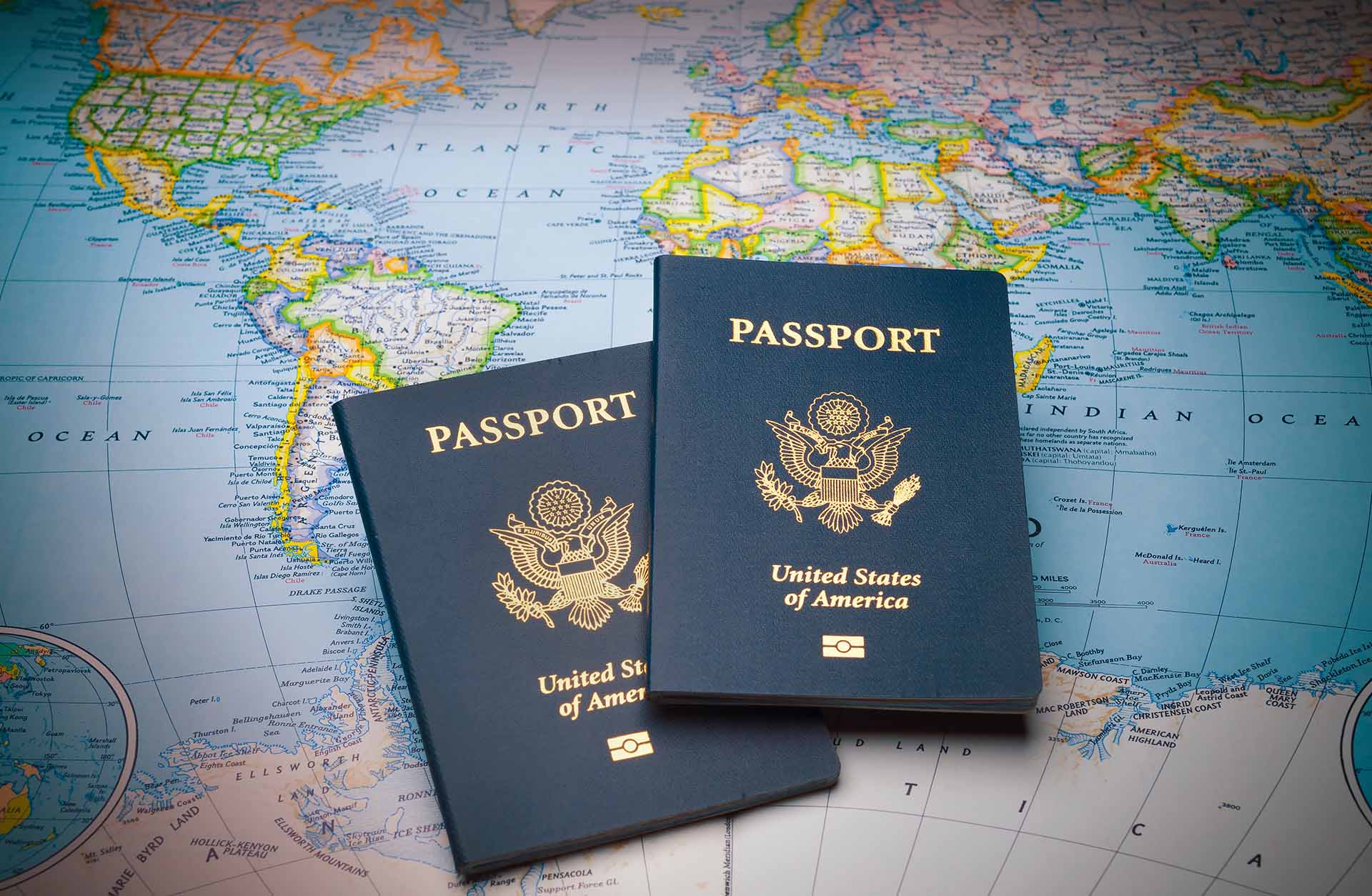Relocating is known as one of the top 5 stressors in life. It’s a major change, especially when relocating abroad, and it can be very difficult to pull off. But there are ways how to make moving easier and less stressful. So, here are the 8 best tips that will help you out throughout the process.

Here are the 8 essential tips on how to make moving easy: start early and plan ahead, hire professionals, declutter beforehand, have a packing strategy ready, have friends and family help you, notify people you’re relocating, and have a separate box for essentials. By implementing these tips, your relocation will be as smooth sailing as it can be.
#1 Start Early and Plan Ahead
One of the most crucial aspects of making a relocation easier is to start early and plan ahead. The more time you give yourself to prepare, the smoother the entire process will be. Early preparation allows you to tackle the various tasks involved in relocating without feeling rushed or overwhelmed like you would if you were doing everything at the last minute.
By starting early, you can also take advantage of better deals and options when it comes to hiring professional movers or renting moving equipment. This ensures that you have a wider range of choices and can secure the services you need without any last-minute panic.
Additionally, starting early gives you the opportunity to inform relevant parties about your upcoming relocation, such as utility companies, banks, schools, and healthcare providers. This allows you to smoothly transfer or cancel services, update your address, and avoid any disruptions in essential services.
Create a Moving Timeline and Checklist
To stay organized and keep track of all the tasks involved in your relocation, creating a moving checklist and timeline is crucial. A timeline helps you establish a clear schedule for each step of the process, ensuring that you don’t overlook any important details. It allows you to set deadlines for packing, hiring movers, notifying necessary parties and completing other essential tasks.
Alongside your timeline, a detailed checklist serves as a visual guide to ensure you cover everything. Divide your checklist into categories such as packing, logistics, administrative tasks, and post-move tasks. This way, you can prioritize and tackle each item systematically, reducing relocation stress and avoiding any last-minute rush.
Utilize Technology and Apps
In the digital age, technology can be a valuable asset in making your move efficient and organized. There are various moving apps available that can simplify the process and help you stay on top of everything.
These apps can assist you in creating digital inventories of your belongings, allowing you to track and manage them more effectively. Some apps even provide barcode scanning options for easy cataloging. These features can be especially helpful when it comes to insurance claims or ensuring that nothing gets lost during the relocation.
Moreover, these apps often come with pre-built checklists and timelines tailored specifically for relocation. These ready-made resources can save you time and effort in creating your own, providing you with a comprehensive roadmap to follow.

#2 Hire International Moving Company to Assist You
Moving overseas presents a unique set of challenges that can be best navigated with the help of an experienced overseas moving company. When relocating to a different country, it’s essential to choose a relocation company that has expertise in handling international moves. They possess the knowledge, resources, and network necessary to ensure a smooth and successful relocation.
Use a Variety of Services When Moving Overseas
An overseas shipping company offers a range of services tailored to meet your specific needs. They can assist you with every aspect of your move, from packing services and shipping your belongings by sea to handling customs requirements and coordinating logistics. By hiring professionals, you can rely on their expertise to guide you through the complex process of moving abroad.
One of the primary benefits of relocating with an international relocation company is their familiarity with the regulations and requirements of different countries. They can provide invaluable guidance on customs documentation, import restrictions, and any special considerations that may apply to your destination. This expertise helps you avoid potential delays, penalties, or complications that could arise from non-compliance.
Additionally, international relocation companies often offer storage options for those who need temporary storage of their belongings before or after the move. This can be particularly useful if you need to bridge the gap between leaving your current residence and arriving at your new destination.
#3 Declutter and Downsize Your Current Home
Before embarking on a move, it is highly beneficial to declutter and downsize your current home. Decluttering involves sorting through your belongings and getting rid of items that are no longer needed or desired. Downsizing, on the other hand, refers to reducing the overall volume of possessions to fit into a smaller space or simply to simplify your life. This process of decluttering and downsizing offers several advantages when it comes to moving internationally.
Firstly, decluttering helps you streamline the packing process. By eliminating unnecessary items, you reduce the number of belongings that need to be packed, saving time and effort. It also allows you to be more efficient in organizing and labeling your boxes, ensuring that everything is properly categorized and easily accessible when you arrive at your new home.
Need More Motivation to Get Rid of Things? Decluttering Can Help You Save Money
Decluttering also helps you save money on relocation expenses. The more items you have, the heavier your shipment will be, which can result in higher transportation costs. By downsizing and getting rid of excess belongings, you can potentially reduce the size of your relocation and, subsequently, the associated costs.
Moreover, decluttering can be emotionally liberating. Letting go of unnecessary possessions can help you release attachments to the past and embrace new beginnings. It provides an opportunity for personal growth and the chance to simplify your life, focusing on what truly matters to you.
Tips for Sorting and Organizing Belongings
When it comes to decluttering and downsizing your belongings before a move, effective sorting and organization techniques are key. Here are some helpful relocation tips to make the process smoother and more efficient:
- Categorize your belongings: Start by dividing your items into categories such as clothing, books, kitchenware, electronics, and sentimental items. This will help you visualize the volume of belongings you have and make it easier to prioritize what to keep and what to let go of and not pack.
- Set criteria for decision-making: Establish clear guidelines for determining which items to keep and which ones to part with. Consider factors such as usefulness, sentimental value, frequency of use, and space limitations in your new home. This will assist you in making objective decisions and avoiding unnecessary attachment to items that no longer serve a purpose.
- Take it room by room: To maintain organization and avoid feeling overwhelmed, tackle one room at a time. Start with areas that are less emotionally challenging, such as storage spaces or guest rooms. Gradually work your way through each room, sorting and organizing as you go.
- Use the four-box method: As you sort through your belongings, use the four-box method: one box for items to keep, one for items to donate, one for items to sell, and one for items to discard. This system helps you stay focused and ensures that each item is assigned an appropriate category.
Donate, Sell, or Discard Unwanted Items
Once you have sorted and categorized your belongings, it’s time to decide what to do with the items you no longer need or want. Consider the following options:
- Donate: Many charitable organizations accept donations of gently used items, such as clothing, furniture, and household goods. Research local donation centers or charities that align with causes you support and arrange for drop-off or pick-up. Donating allows your unwanted items to find new homes and helps those in need.
- Sell: If you have valuable or in-demand items that are still in good condition, consider selling them. Online platforms such as Craigslist, local classifieds, garage sales, or consignment shops are excellent avenues for selling furniture, electronics, clothing, and other items. This not only helps you declutter but also provides an opportunity to earn some extra money to offset relocation expenses.
- Discard responsibly: For items that are damaged, broken, or no longer usable, proper disposal is necessary. Research local guidelines for recycling or disposing of specific materials, such as electronics, hazardous waste, or large furniture. Responsible disposal ensures that your unwanted items don’t end up in landfills and minimizes their environmental impact.
Watch this video if you need more advice on how to declutter.
#4 Create a Packing Strategy
To ensure an organized and efficient move, it is essential to create a packing strategy. By breaking down the packing process into manageable tasks, utilizing a labeling system, and packing room by room, you can stay organized and make the unpacking process much smoother.
First, break down the packing process into smaller, manageable tasks. Trying to tackle everything at once can be overwhelming and lead to disorganization. Start by packing items that you don’t use frequently or those that are not essential for everyday life. Gradually work your way through each room, packing items systematically.
Next, employ a labeling system and use color-coded boxes. Label each box with its contents and the room it belongs to. This allows you to quickly identify the contents of each box and ensures that they end up in the right place in your new home. Using color-coded labels or tape for different rooms adds an extra layer of organization, making it even easier to identify where each box should be placed.
Packing room by room is another effective strategy. Focus on one room at a time, packing its contents before the next one. This approach keeps similar items together and minimizes confusion when unpacking. Additionally, it helps you maintain a sense of control and ensures that nothing is overlooked or left behind.

#5 Enlist Help of Friends and Family and Delegate Assignments
When faced with the complicated task of relocating, enlisting the help of friends, family, or even professional movers can greatly ease the burden. Reaching out for assistance lightens your workload. Here are some tips for enlisting the help and effectively delegating tasks:
- Firstly, don’t hesitate to ask for help. Friends and family members are often more than willing to lend a hand during a relocation, so reach out to them and communicate your needs. If needed, you can also consider hiring professional movers to handle the heavy lifting and logistics.
- Delegate tasks and distribute responsibilities among your helpers. Assign specific roles such as packing certain rooms, organizing paperwork, or overseeing the logistics of the move. This ensures that everyone knows what they need to do and helps to avoid duplicating efforts. Delegating tasks also allows you to focus on other important aspects of the move, such as administrative tasks or saying goodbye to your current community.
- Effective communication is key when working with helpers. Clearly explain the expectations, timelines, and any specific instructions for each task. Keep an open line of communication to address any questions or concerns that may arise. Utilize tools like shared calendars or group chats to coordinate schedules and keep everyone informed.
- Remember to show appreciation and gratitude for the assistance provided. Expressing gratitude not only makes your helpers feel valued but also strengthens the bonds of friendship and family. Consider organizing a small gathering or providing a token of appreciation as a gesture of thanks once the relocation is complete.
Enlisting the help of friends, family, or professional movers not only lightens the workload but also creates a support system during the challenging relocation process. By effectively delegating tasks and maintaining clear communication, you can ensure a more seamless and stress-free relocation experience.

#6 Notify Important Parties About Your Move
When preparing for a relocation, it’s crucial to notify important parties about your change of address and updated contact information. This ensures that essential services, communication, and important mail reach you at your new location. Here are some key steps to take when notifying parties about your relocation:
- Update your address and contact information with the postal service. Fill out a change of address form either online or at your local post office. This will ensure that your mail is forwarded to your new address for a specified period, minimizing the risk of missing important correspondence.
- Notify utility companies, such as electricity, water, gas, and internet providers, about your relocation. Arrange for the transfer or cancellation of services at your current address and set up new services at your new home.
- Contact financial institutions, including banks, credit card companies, and insurance providers. Update your address and contact information to ensure that important statements, bills, and correspondence are sent to the correct address.
- Notify subscriptions and membership services. This includes magazines, newspapers, online streaming services, gym memberships, and any other subscriptions you have. Update your address and contact information or cancel and set up new subscriptions as necessary.
- Inform government agencies, such as the tax authorities, voter registration office, and the Department of Motor Vehicles, about your change of address. This will help ensure that you receive important documents, notifications, and voter information at your new address.
- Setting up mail forwarding with the postal service is a crucial step to ensure that no important mail is missed during the transition period. However, it’s important to update your address with all relevant parties to ensure a smooth and uninterrupted flow of communication.
#7 Take Care of Essentials
As the moving day approaches, it is essential to pack an essentials box or suitcase. This dedicated container will hold the items you’ll need immediate access to upon arrival at your new home. Packing an essentials box ensures that you have essential items readily available and saves you from searching through multiple boxes in search of necessities. Some key items to include in your essentials box are toiletries, medications, important documents, clothing, electronics and chargers, and basic kitchen supplies.
Toiletries should include items such as toothbrushes, toothpaste, soap, shampoo, and any other personal care items you use daily. Medications should be packed along with a small first aid kit. Important documents like passports, identification cards, birth certificates, and financial or legal papers should be secured in a folder or envelope.
Pack a few changes of clothes for each family member, considering the weather and any specific events or occasions that may arise during the initial days in your new home. Include essential electronics and chargers, such as phones and laptops, to stay connected during the relocation. Lastly, consider including basic kitchen supplies like paper towels, disposable cutlery, and non-perishable snacks.

#8 Stay Calm and Practice Self-Care
Relocating can be an emotionally and physically demanding experience, so it’s crucial to prioritize self-care during this time. Acknowledge the stress that comes with the process, and remember to take care of yourself. Take breaks when needed, ensuring you get enough rest and stay hydrated.
Engage in self-care activities to alleviate stress, such as exercising, practicing meditation or deep breathing, and setting aside leisure time for activities you enjoy. By prioritizing self-care, you can maintain a sense of balance, reduce stress levels, and navigate the challenges of relocating with a clearer and calmer mind.

When You Know How to Make Moving Easier, You’ll Surely Enjoy the Whole Process
When you implement the right relocation hacks and strategies, you will realize that relocating abroad doesn’t have to be a traumatic process. Hiring a reputable moving company such as I Love International Moving adds an extra layer of expertise and support, ensuring a smoother transition to your new home. So, contact us and let us provide you with a stress-free relocation experience. With careful preparation, you can embrace the excitement of starting a new chapter and adjusting to a new space with ease.












